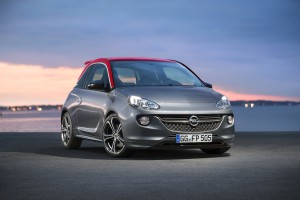Sales of new vehicles in Europe continued to expand in September with sales volumes once more rising by 9.8% year-over-year, according to the latest data published by the European Automobile Manufacturers’ Association, boosting year-to-date increase in sales to 8.8% year-over-year to 10.4 million units.
The result is welcome news for the continent, which had seen car sales drop sharply since the economic crash in 2008.
The EU passenger car market recorded strong growth in all its major markets last month, with sales in the big-five European markets all recording growth, ranging from 4.8% in Germany to 22.4% in Spain. Spain and Italy benefited from low base comparisons and from the ongoing improvements that are resulting from increased scrappage and a gradual economic recovery.
The three non-EU 28 countries – Iceland, Norway and Switzerland – posted a combined uplift of 9.8% year-to-date, which exactly matched the overall growth rate recorded in the wider region.
For global carmakers, the gradual recovery in Europe is good news since sales in Japan have declined recently and growth in demand for new vehicles in China, which paced growth in the automotive business for the past quarter, has stalled this year as the country’s economy cooled.
(Mirror, mirror…who’s the greenest of them all? Click Here for the Green Car of the Year finalists.)
September marked the 24th consecutive month of growth in Europe as well as the end of the third quarter and therefore there was the usual effort by OEMs and dealers to meet sales targets and pre-register as many cars as possible.
In addition, there were the usual age-related plated change in the UK during the month, which further bolstered sales and Spain continues to be fueled by scrappage, although the funds are expected to be exhausted soon, IHS noted.
Carlos Da Silva, manager for IHS Automotive’s European light-vehicle sales forecast, said, while Europe is still has not recovered from the financial crisis, economic tensions have reduced markedly, credit availability is improving, energy costs are subdued and even unemployment is dropping.
(Click Here for details about more ignition switch issues for GM, airbags for Takata.)
“This all combines to broadly improve the Europeans sentiment: as a piece of evidence, customers confidence in the region has been at its highest level since 2007 for the past few months. Autos markets throughout the zone are quite normally benefiting from this environment,” De Silva said.
“We are only seeing consistent and comparatively significant monthly rises as a result of the low base that has already gone before,” De Silva noted. “The market is still largely in recovery, catch up mode.”
He also said the VW emissions should not have an impact on overall sales totals, though Volkswagen’s rivals could benefit.
(To see the spy shots for the new 2017 Lincoln MKZ, Click Here.)
“Of course Volkswagen itself will suffer in Europe (if only from reputational damage in the very first stage) and diesel in general, as a European specificity, will be hurt somewhat. Purchase behaviors, preferences, mixes … will certainly change faster than anticipated previously. But, as of today, we do not consider this can derail the market and pose a serious threat to its ongoing recovery,” he said, adding that for the full year IHS believes the EU28 will rise by 7% year-over-year to 13.4 million units.

